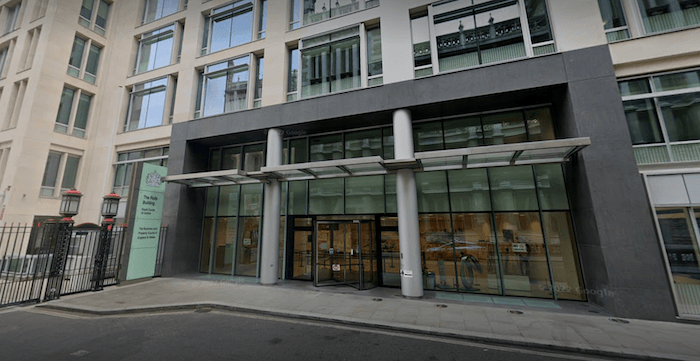It’s esteemed around the globe, but competition is hotting up. International rivals are popping up whilst world events, notably the invasion of Ukraine, may take a toll. Reading Uni law student Ben Holder takes a look at the Commercial Court and assesses its future

If you are a wealthy individual, foreign or national, a Russian oligarch perhaps, or even an international business looking for a fair, impartial, and expert hearing, then the London Commercial Court may just be the place for you to litigate.
Perhaps it’s a dispute about a multi-million-pound diamond, a row about oil shares or maybe you are seeking a bizarre court order to arrest a billionaire’s yacht? These types of cases are just a few of the unique and often high value cases heard in the Commercial Court each year. Located in the Rolls Building in London and part of the Business and Property courts of England and Wales, there has never been a more enterprising court that attracts the level of unprecedented investment and capital into the London corporate legal market than that of the Commercial Court. But could this court’s lucrative practice be under threat from Brexit or other global events? Perhaps it has new foreign rivals to contend with or perhaps it’s just lost the unique edge it once had in its youth?
For a comprehensive insight into the London Commercial Court, it’s important to examine what it does for the City of London and the London legal market as a whole, its powers and jurisdiction and also the possibility of the court’s “glow-down” in the eyes of international litigants and transnational companies. Set up in 1895, as part of the Queen’s Bench Division, the court served as a place for expert judicial consideration on the increasing amount of complex commercial disputes arising as a result of globalisation and the growth of transnational commerce on a scale never before seen by the English courts. But in recent years, while maintaining that unparalleled expertise and expanding its business, the court has come to be used exclusively by the super-rich and even, one might quietly say, dubious Russian businessmen.
What does it do for London and the legal market?
The Commercial Court’s enterprising reputation emanates from the fact that practically every case heard by the court is worth in-excess of £10 million. Given that the court handles approximately 800 cases per annum, its sheer volume of litigation provides a thriving practice for corporate lawyers in the City. According to the Commercial Court’s annual report, the majority of the court’s work stems from international cases, with 75% of cases involving one international litigant in 2020-2021. This is unsurprising given the scope of the court’s work from aviation to maritime shipping collisions and carriage of goods disputes as well as oil, gas, and banking litigation.
The combination of the Commercial Court’s independence of mind and the expert legal industry in London attracts a significant amount of business to the capital. To quantify this contribution, one might point to the £60 billion the legal sector contributed towards the UK economy in 2018, with the majority of this revenue being produced in London. Furthermore, it is no secret that London has a long history of being attractive to foreign companies and wealthy individuals seeking to bring legal challenges. Most notably and rather unsurprisingly, Russia was one of the most active nations in London’s courts for the fifth sequential year in 2021, with the number of litigants doubling since 2017, according to research from Portland Communications. The Commercial Court, by virtue of the work it undertakes, often deals with high-profile and high-net-worth individuals creating big bucks for London lawyers. To exemplify this, the Berezovsky v Abramovich saw some of the highest legal fees in British legal history.
The dispute concerned oil share profits in the Russian oil giant, Sibneft (now known as Gazprom Neft), that Boris Berezovsky claimed he had lost out on as a result of being forced to sell the shares by Roman Abramovich. The legal costs associated with instructing London’s top commercial litigators and KCs exceeded £10 million for Abramovich. In fact, Lord Sumption KC (then QC and prior to his Supreme Court appointment), acting on behalf of Abramovich was paid nearly £8 million, the biggest fee in British legal history according to The Times. This case is not uncharacteristic of the types of cases seen in the Commercial Court, demonstrating its ability to facilitate million-pound legal fees for London lawyers, enabling the growth of both the London legal market and the City of London. It is for this reason that this little-known court is truly an invisible export of the UK.
Want to write for the Legal Cheek Journal?
Find out moreWhat makes London so attractive?
Having examined the contribution of the Commercial Court to the London legal economy and consequently the UK economy, it is only natural to ponder why London is the chosen location to conduct such high-value litigation. As for Russian activity in the Commercial Court, one can assume that the reason for this is the distrust and partiality of the Russian courts when deciding such high-value cases between high-profile litigants. To exemplify this, we need not look further than why Berezovsky chose London as the place to hear his claim. As an outspoken critic of the Putin government, he reportedly felt unable to have a fair trial in Russia, fearing a Kremlin conspiracy to urge the court to favour Abramovich, who according to reports was once a close associate of Putin. In London, Berezovsky could be sure that the English courts would give him a fair trial. He demonstrated this sentiment upon entering the Rolls Building, exclaiming that he “believed in the system”. While England and Wales’s judicial independence boosts business confidence, much international business is conducted under the long-established principles of English contract law.
Let’s turn back to the Berezovsky litigation. This case, as we know, involved verbal agreements between parties. This simple fact provides further insight as to why Berezovsky didn’t pursue his claim in Russia. Russian law does not, in essence, recognise verbal agreements. However, English law does, making Berezovsky’s decision to choose London’s commercial court both a strategic and politically prudent one. In fact, most business transactions in Russia are agreed verbally, whether it be because of knowing one another or a mutual commercial interest. When such agreements fall through, Russian law provides no appropriate remedy to vindicate one’s rights, making the Commercial Court increasingly appealing. In addition, the wide range of legal tools at a litigant’s disposal makes litigation in England very enticing. A freezing injunction is just one of the many powerful legal moves available to the court. This order will freeze money and assets, stopping defendants transferring their assets outside the court’s jurisdiction to frustrate future awarded damages. Moreover, that’s not the only powerful play: search orders give claimants an opportunity to seize items related to proving their case and which could be disposed of by the defendant to frustrate the claimant’s case evidentially.
Current threats to this enterprising court
Given the financial success bought by the Commercial Court, many other countries have endeavoured to take a piece of the pie. In recent years other financial cities like London have established their own Commercial Court in hopes of attracting investment, businesses, and high-value litigation. Countries like Germany, France, Belgium, Singapore, and Cyprus have set-up English-speaking Commercial Courts which threaten the future of London’s once unique contribution. With multiple Commercial Courts on each continent, it would seem that Britain’s domination and hegemony of adjudicating on the world’s commercial disputes is shrinking. Cyprus will soon set-up its own Commercial Court in 2023, possibly rivalling London’s sphere of influence over middle eastern/Mediterranean litigation and potentially costing irreparable profits for London lawyers. Furthermore, with other EU nation states establishing their own Commercial Courts, European litigants may also be turned off from litigating in London. The London Commercial Court appears to be facing attack from not only the EU and Mediterranean angle but also the Asia Pacific region. The Singapore International Commercial Court (SICC), established in 2015, presents not only a financial threat, but due to its international outlook and desire for growth has taken a rare step in allowing foreign lawyers to present cases before the court. Known as “offshore cases”, this recent phenomenon is clearly aimed at attracting those litigants with lawyers based outside the Singaporean jurisdiction, which in turn will attract more business and litigation for the court.
Unlike litigating in open court there are more discrete and often cheaper ways to resolve disputes which are eroding the profitability and popularity of the Commercial Court. This risk to the Commercial Court’s future success is known as arbitration. Set up to assist the court with its extensive backlog, it has flourished into a potential risk to the Commercial Court’s future. Held in private, this dispute resolution process is not only discrete but efficient and less costly than a day at the Commercial Court. It is worth noting that while this form of dispute resolution will take cases away from the Commercial Court, it is not as drastic as other issues currently facing the court. This is because the London Commercial Court serves as the supervisory court over arbitrations, therefore should a dispute arise regarding the arbitrator’s decision the Commercial Court will step in to resolve the subsequent dispute, suggesting that arbitration is not always a solid way of keeping one’s dispute out of public eyes.
There are further drawbacks to arbitration that make the Commercial Court a better option in some instances. An arbitrator can order a litigant not to do something, for example, sell an expensive painting in which the ownership of said painting is in dispute. If the subject of the arbitrator’s order did sell the painting, however, they would merely be in breach of an arbitrator’s order. On the other hand, if that worried litigant seeks an injunction from the Commercial Court, the usual remedies for breaching a court order would apply, like contempt and imprisonment, which alone would likely deter the other litigant from selling the painting in the first place.
As for the future of this court, therefore, only time will tell. Will the Commercial Court be able to hold on to the title of Britain’s most enterprising court serving the rich and famous or will its once unique allure be lost to a foreign rival or two? It’s a case of wait and see.
Ben Holder is a second year law student at the University of Reading. His main interests are in crime, human rights and commercial law, and he has completed internships and mini-pupillages.
 (
( (
(

